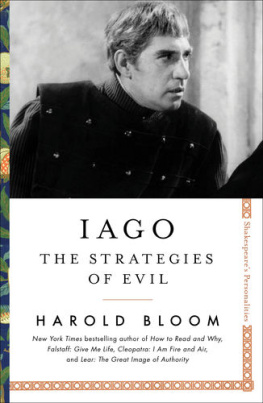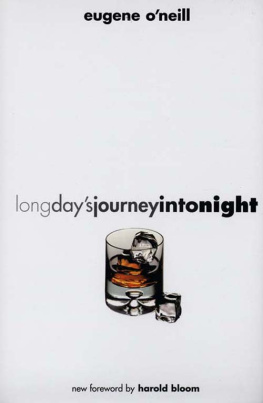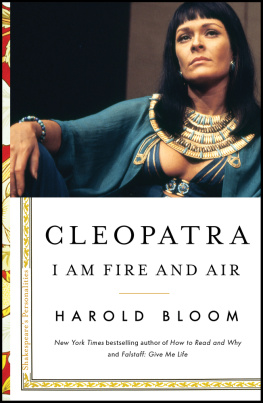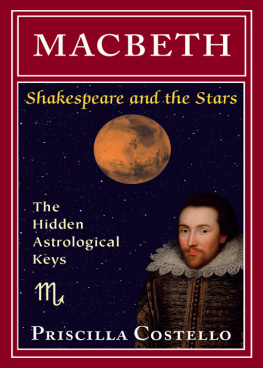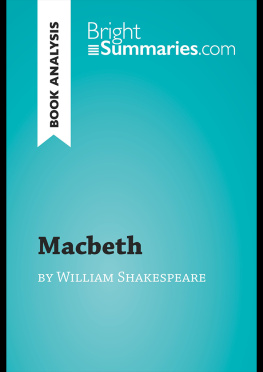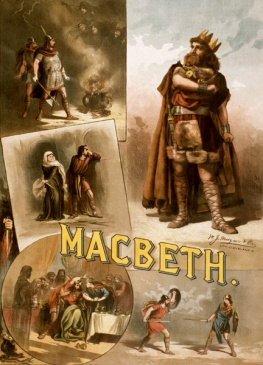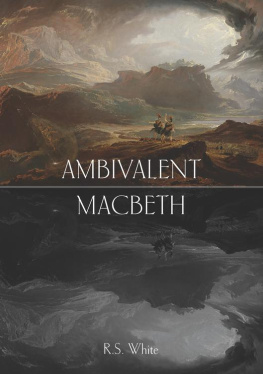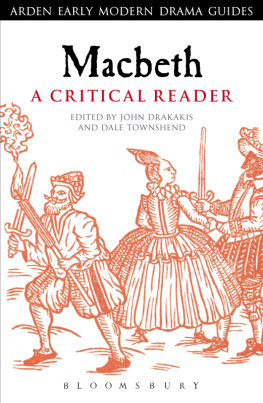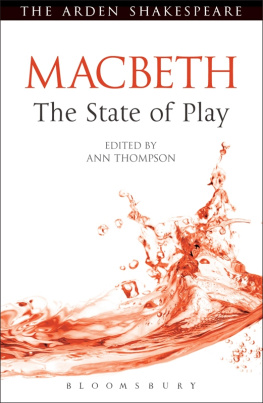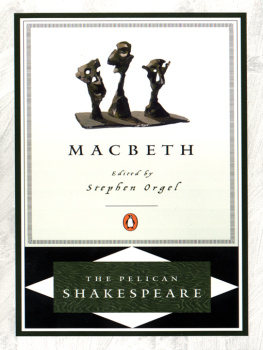Thank you for downloading this Simon & Schuster ebook.
Get a FREE ebook when you join our mailing list. Plus, get updates on new releases, deals, recommended reads, and more from Simon & Schuster. Click below to sign up and see terms and conditions. CLICK HERE TO SIGN UP Already a subscriber? Provide your email again so we can register this ebook and send you more of what you like to read. You will continue to receive exclusive offers in your inbox.
We hope you enjoyed reading this Simon & Schuster ebook.
Get a FREE ebook when you join our mailing list. Plus, get updates on new releases, deals, recommended reads, and more from Simon & Schuster. Click below to sign up and see terms and conditions. CLICK HERE TO SIGN UP Already a subscriber? Provide your email again so we can register this ebook and send you more of what you like to read.
For Glen Hartley
Authors Note
I have tended to follow the latest Arden edition.
For Glen Hartley
Authors Note
I have tended to follow the latest Arden edition.
However, I have repunctuated according to my understanding of the text. In some places, I have restored what I believe to be Shakespeares language, whenever I judge traditional emendations to be in error.
CHAPTER 1
And Nothing Is, but What Is Not
Nietzsche asserts, in The Dawn of Day , that whoever thinks that Shakespeares theatre has a moral effect, and that the sight of Macbeth irresistibly repels one from the evil of ambition, is in error.... He who is really possessed by raging ambition beholds this its image, with joy ; and if the hero perishes by his passion this is precisely the sharpest spice in the hot draught of this joy. Shakespeares cognitive powers are invested more abundantly in Hamlet than in any other personality, be it Falstaff, Rosalind, Cleopatra, Prospero. His proleptic and prophetic imagination possesses Macbeth, to a degree unmatched by anyone else in the dramas.
Macbeth cannot keep up with his own intimations of the night world. No sooner does he envision an action than he leaps into futurity and gazes back at his initial impulse. Macbeth is a weird, an involuntary soothsayer. The Weird Sisters inevitably await him, knowing that he is, in part, their kin. Readers quite possibly will recognize that they have elements in their imagination that are intensified in Macbeth. I think that many of us fear that we have acted on our darkest impulses before we have fully apprehended them.
There is something preternatural in Macbeth. He alone in his drama is in touch with the night world of Hecate and the Weird Sisters. I will soon be eighty-eight and find myself sometimes seeing and hearing things that are not there. This does not cause alarm because it stays on the border of actual hallucinations. But Macbeth has gone across that border. For him nothing is but what is not.
The play begins with the witches entering with thunder and lightning. We see them only briefly. They chant in riddles that are antithetical: When the battles lost and won. act 1, scene 1, line 4 Fair is foul, and foul is fair. act 1, scene 1, line 9 Our first account of Macbeth conveys his astonishing ferocity: For brave Macbeth (well he deserves that name), Disdaining Fortune, with his brandished steel, Which smoked with bloody execution, Like Valours minion, carved out his passage, Till he faced the slave, Which neer shook hands, nor bade farewell to him, Till he unseamed him from the nave to th chops, And fixed his head upon our battlements. act 1, scene 2, lines 1623 Slicing your opponent open from crotch to jaw is characteristic of Macbeth, who is described as the husband of the war goddess, or Bellonas bridegroom.
After Duncan, the Scottish king, adds the title of Thane of Cawdor to Macbeths honors, we return to the three Witches. They accost Macbeth and his fellow captain Banquo: Macbeth: So foul and fair a day I have not seen. Banquo: How far ist calld to Forres? What are these, So withered and so wild in their attire, That look not like thinhabitants oth earth, And yet are ont? Live you, or are you aught That man may question? You seem to understand me, By each at once her choppy finger laying Upon her skinny lips. You should be women, And yet your beards forbid me to interpret That you are so. Macbeth: Speak if you can: what are you? 1 Witch: All hail Macbeth, hail to thee, Thane of Glamis. 3 Witch: All hail Macbeth, that shalt be king hereafter. 3 Witch: All hail Macbeth, that shalt be king hereafter.
Banquo: Good sir, why do you start, and seem to fear Things that do sound so fair?Ith name of truth, Are ye fantastical, or that indeed Which outwardly ye show? My noble partner You greet with present grace, and great prediction Of noble having and of royal hope, That he seems rapt withal. To me you speak not. If you can look into the seeds of time, And say which grain will grow, and which will not, Speak then to me, who neither beg nor fear Your favors nor your hate. 1 Witch: Hail. 2 Witch: Hail. 1 Witch: Lesser than Macbeth, and greater. 2 Witch: Not so happy, yet much happier. 3 Witch: Thou shalt get kings, though thou be none: So all hail, Macbeth, and Banquo. 1 Witch: Banquo, and Macbeth, all hail. 1 Witch: Banquo, and Macbeth, all hail.
Macbeth: Stay, you imperfect speakers, tell me more. By Finels death, I know I am Thane of Glamis, But how of Cawdor? The Thane of Cawdor lives A prosperous gentleman: and to be king Stands not within the prospect of belief, No more than to be Cawdor. Say from whence You owe this strange intelligence, or why Upon this blasted heath you stop our way With such prophetic greeting? Speak, I charge you. Witches vanish. act 1, scene 3, lines 3878 Macbeth was played before King James I, who began as King James VI of Scotland. By tradition, James I was descended from Banquo.
In Shakespeares sources, Banquo was as guilty as Macbeth, but here he is stalwart and heroic. Finel was Macbeths father, while Banquo and Macbeth do not yet know of Cawdors treachery. An extraordinary aside marks the advent of Macbeths proleptic imagination: Macbeth: [ aside ] Two truths are told As happy prologues to the swelling act Of the imperial theme.I thank you, gentlemen. This supernatural soliciting Cannot be ill; cannot be good. If ill, Why hath it given me earnest of success, Commencing in a truth? I am Thane of Cawdor. If good, why do I yield to that suggestion Whose horrid image doth unfix my hair, And make my seated heart knock at my ribs, Against the use of nature? Present fears Are less than horrible imaginings.
My thought, whose murder yet is but fantastical, Shakes so my single state of man That function is smothered in surmise, And nothing is, but what is not. act 1, scene 3, lines 12944 The tormented grammar partly suggests Macbeths psychic turmoil. His murderous thought, though still a fantasy, so agitates his unaided state of man that function, or potential action, is smothered in surmise, or censored by imagination. The motto of Macbeth, both play and person, could well be: And nothing is, but what is not. Nothing is used sixteen times in Macbeth . It is startling for me to realize that those sixteen occurrences are outweighed by thirty-four in King Lear , thirty-one in Hamlet , and twenty-six in Othello .
But then, Macbeth is a ruthlessly economical tragedy of just over two thousand lines. The prominence of nothing in it is as salient as is the undersong of nothingness in the other three great tragedies of blood.
CHAPTER 2
Next page
